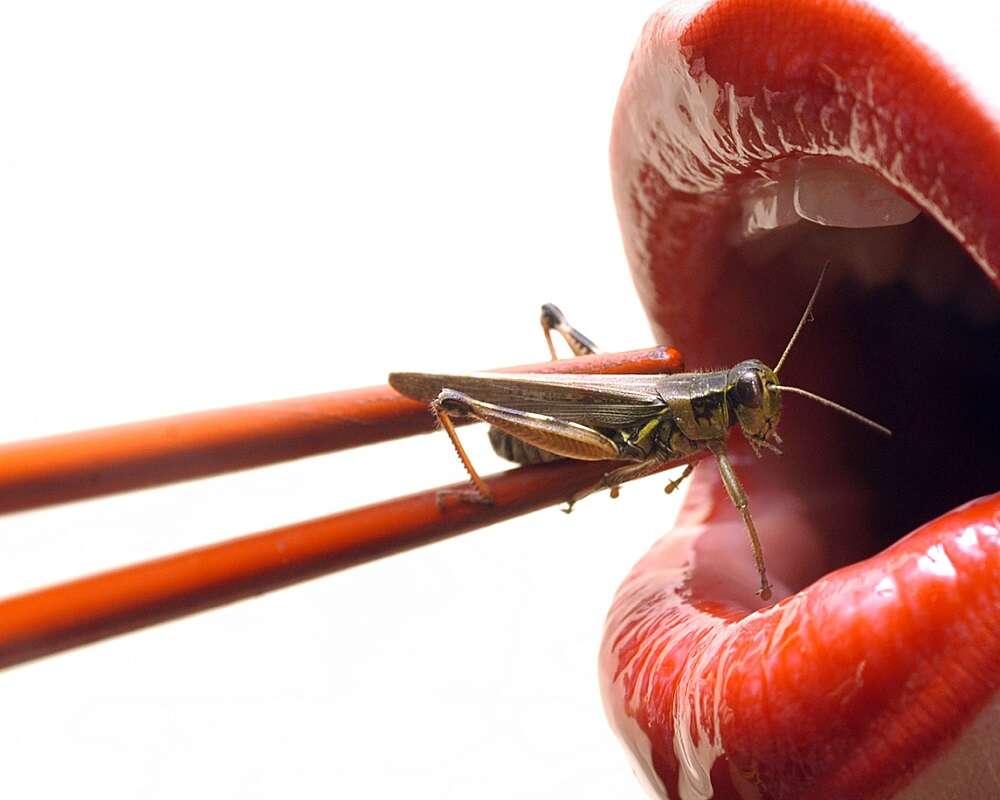
Using celebrity endorsements in adverts for insect-based foods can increase people’s willingness to include insects in their diet, finds new research from BI Norwegian Business School (BI), Chuo University, Miyagi University, and Oxford University.
To combat and prevent a global food crisis, we need to explore alternative protein sources. The UN has urged people to consider the consumption of insects as they are nutritious, sustainable, and readily available worldwide. However, many struggle with the concept of eating insects.
In a new study, Carlos Velasco, Associate Professor from BI’s Department of Marketing, and colleagues explored if endorsements from celebrities, such as Angelina Jolie or Dwayne Johnson, can influence people to eat insects. They created 66 fictitious ads for insect-based products – a cricket bar and mealworm burger – with 64 featuring endorsements from different celebrities (actor, musician, or athlete) and two featuring no celebrity endorsements. Participants were provided information on insect-based foods and the benefits of eating them before viewing the ads and then indicating their willingness to eat the product.
The findings showed that celebrities’ perceived trustworthiness, knowledge about insect-based foods, and appropriateness are crucial factors in increasing people’s willingness to eat insects. However, different genders responded differently: For men, ads featuring actors or athletes were most effective, while only actors were effective in influencing women. In comparison, musicians did not appear to be as influential. In fact, using musicians in ads made women less willing to consume insect-based foods.
Professor Velasco says,
“Interestingly, perceived attractiveness of a celebrity did not influence opinion. We do not appear to care much about looks when someone is promoting a product that has nothing to do with being attractive. Our findings demonstrate that celebrity endorsement can be a very effective strategy to increase consumer interest in eating more insects, as long as the right celebrity is targeted at the right gender”.
These findings were published in the journal Food Quality and Preference.


